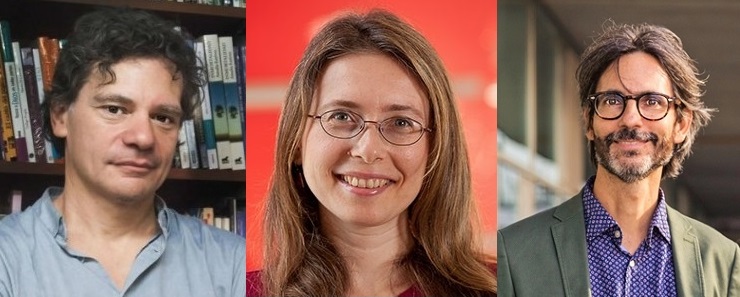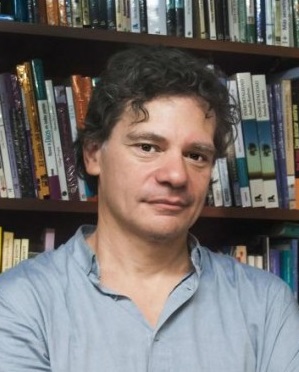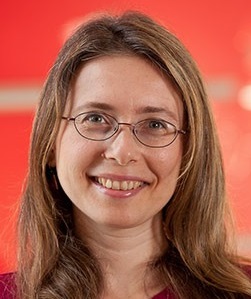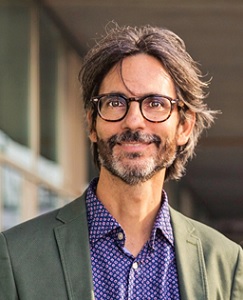UPF wins three Advanced Grants 2022 from the European Research Council to boost cutting-edge research
UPF wins three Advanced Grants 2022 from the European Research Council to boost cutting-edge research
UPF wins three Advanced Grants 2022 from the European Research Council to boost cutting-edge research
The researchers Roberto Gargarella and Barbara Rossi will carry out their research projects at the University’s departments of Law and Economics and Business, respectively, and Iñaki Ruiz Trillo, at the Institute of Evolutionary Biology (CSIC-UPF).

The European Research Council (ERC) has today, 30 March, published the results of the 2022 call for ERC Advanced Grants, obtained by 218 leading researchers in their respective fields of knowledge, under the Horizon Europe research and innovation scheme. They will receive a total of 544 million euros to conduct innovative projects, drive forward the frontiers of knowledge, and place Europe at the forefront of science.
Among the 218 researchers chosen from the 1,735 applications submitted (representing a success rate of 13.2%), three will carry out their projects, over five years, at Pompeu Fabra University or a related centre: two in the field of Social Sciences and Humanities (Roberto Gargarella and Barbara Rossi), and one in the field of Life Sciences (Iñaki Ruiz-Trillo).
With three grants, UPF is the Spanish institution to have received the most ERC Advanced Grants in this 2022 call
Roberto Gargarella, a full professor of Constitutional Law at the University of Buenos Aires, and also a teacher at Universidad Torcuato Di Tella in the Argentine capital, will join the UPF Department of Law to conduct the project titled “Institutional Changes for Democratic Dialogue (ICDD)”, endowed with close to 1.2 million euros.
Barbara Rossi is an ICREA research professor of the UPF’s Department of Economics and Business (also linked to the CREI and the BSE), where she will pursue the project “Advances in Empirical Methods for Time Series and Forecasting in Unstable Environments (TIMESERIESFOREC)”, with a subsidy of someone million euros.
Iñaki Ruiz-Trillo is an ICREA research professor and head of the Multicellular Genome Laboratory Institute of Evolutionary Biology, a UPF-CSIC joint centre. His project “Search for the missing unicellular relatives of animals (MISSINGRELATIVES)” has been awarded almost 2.5 million euros.
UPF, with three grants, is the institution of Spain (16 grants in total, 9 of which are in Catalonia) that has obtained the most ERC Advanced Grants in this 2022 call, while the others have obtained one each.
Since 2007, when the ERC grant scheme was started, according to a report published by the AGAUR, Pompeu Fabra University is the institution that has obtained the most grants in Spain (as a sum of all its modalities, including Advanced Grants) from the European Research Council, with 62, to which these three Advanced Grants must be added (65 in total, almost 50% more than the second institution, the CRG).
Research that will be carried out in some twenty countries, by researchers of 27 nationalities
The Advanced Grants, one of the modalities of the European Research Council grants, are awarded to outstanding and recognized researchers that have a proven track record of major achievements during the last decade. With this funding, they will be able to explore their most innovative and ambitious ideas, at the forefront of knowledge, launch their own projects and form their own research teams.
On a global scale, the 218 researchers selected in this 2022 call for ERC Advanced Grants will conduct their projects in universities and research centres in some twenty countries in Europe, with the largest number of projects in Germany (37), the United Kingdom (35), France (32) and Spain (16). The winners come from all over the world, representing 27 nationalities, mainly Germans (36 researchers), French (32), Italians (21), and British (19).
Since 2007, when the first calls for ERC grants was opened, according to a report published by the AGAUR, Pompeu Fabra University is the state institution that has obtained the most grants (in all its modalities) from the European Research Council, with a total of 62, to which these three Advanced Grants must now be added.
The three UPF projects to obtain grants
Designing institutional proposals sensitive to democratic demands
The project ICCD, led by Roberto Gargarella, stems from the deep crisis affecting constitutional democracies around the world and manifests itself both in a growing lack of confidence in constitutionalism and in an increase in citizens’ dissatisfaction with democracy.
“The ultimate goal of the project is to design institutional proposals that are both respectful of individual rights and the decisions resulting from democratic dialogue”
 ICDD aims to make constitutionalism more sensitive to the growing democratic demands posed: for this reason, it seeks to offer concrete institutional alternatives designed to channel the demands of democracy and engage with activists and members of civil society, from a conception of democracy as a “conversation between equals”.
ICDD aims to make constitutionalism more sensitive to the growing democratic demands posed: for this reason, it seeks to offer concrete institutional alternatives designed to channel the demands of democracy and engage with activists and members of civil society, from a conception of democracy as a “conversation between equals”.
“The ultimate goal of the project is to design institutional proposals that are both respectful of individual rights and the decisions resulting from democratic dialogue”, Roberto Gargarella asserts.
Predicting and evaluating the effects of economic policies in an unstable environment
TIMESERIESFOREC, led by Barbara Rossi, is framed in the current environment in which we are living, which is both complex and variable over time, as demonstrated by the financial crises, the covid-19 pandemic and the war in Ukraine. At present, however, the way in which researchers apply forecasts and estimate the effects of economic policies, in the face of instabilities, is based on methods that either impose restrictive assumptions or computationally become too demanding.
“We hope that TVP-LP will provide a feasible approach to comfortably and flexibly estimate economic models in unstable environments”
 The project proposes developing an estimator based on local projection for time-varying parameter models (TVP-LP), which offers advantages in terms of forecasting capacity, as well as for the evaluation of the effects of economic policy, and fiscal policy in particular.
The project proposes developing an estimator based on local projection for time-varying parameter models (TVP-LP), which offers advantages in terms of forecasting capacity, as well as for the evaluation of the effects of economic policy, and fiscal policy in particular.
“We hope that TVP-LP will provide a feasible approach to comfortably and flexibly estimate economic models in unstable environments, and in more general terms, to predict and assess the effects of economic policies”, Barbara Rossi states.
Investigating how the evolutionary leap from single-celled organisms to animals took place
The project MISSINGRELATIVES, directed by Iñaki Ruiz-Trillo, aims to find out how the evolutionary leap from single-celled organisms to animals took place.
Today it is known that single-celled organisms have a number of genes that have proved key for organisms to become multicellular. However, when comparing the genome of single and multicellular organisms, there is still too great a jump between the genomes, which suggests that related species remain to be identified.
“We will not be able to understand the origin of animals until we have explored the real diversity of their closest relatives and characterized their main lineages”
 Hence, this project aims to use state-of-the-art identification and sequencing techniques to carry out an exhaustive search to allow continuing with the identification of new species and expanding the 8 lineages of single-celled organisms closest to animals, which they have already identified.
Hence, this project aims to use state-of-the-art identification and sequencing techniques to carry out an exhaustive search to allow continuing with the identification of new species and expanding the 8 lineages of single-celled organisms closest to animals, which they have already identified.
“We will not be able to understand the origin of animals until we have explored the real diversity of their closest relatives and characterized their main lineages”, Iñaki-Ruiz-Trillo affirms.
